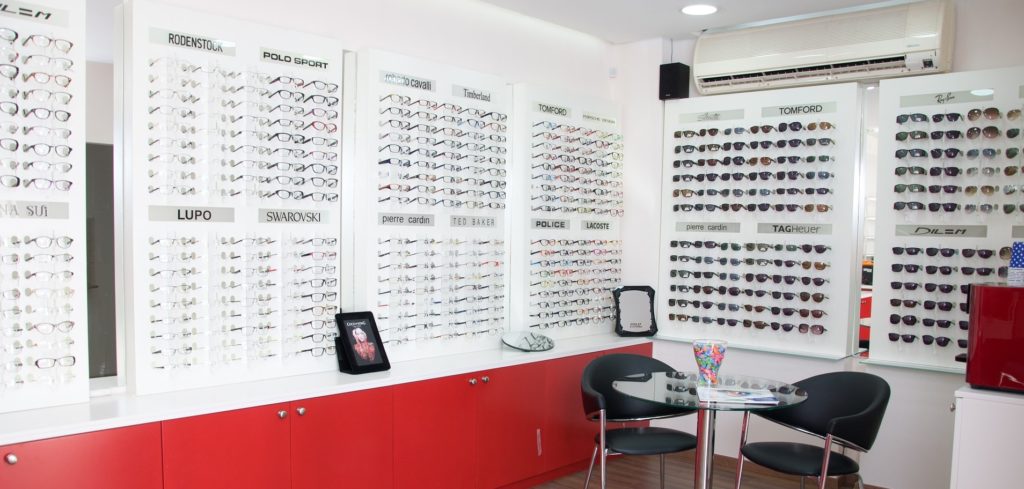With the summer finally seeming to have started, Specsavers Corporate Eyecare is encouraging employers to consider eye care as part of their sun protection policy.
The British summer is here, which means occasional days of searing heat and bright sunshine, interspersed among weeks of haze and drizzle. Those sunny days might be a treat for most, but for those working in the strong glare of the sun, protection is essential.
Specsavers Corporate Eyecare has released some mythbusting facts to emphasise to businesses the risks of working in the sun and distinguish some fact from fiction.
It is the skin that is in most danger from the sun – FALSE
UV rays can be as harmful to your eyes as they are to your skin.
 The sun does not cause any long-term damage to the eyes – FALSE
The sun does not cause any long-term damage to the eyes – FALSE
Ultraviolet (UV) rays emitted by the sun can cause short- and long-term eye damage including cataracts and age-related macular degeneration. Excessive exposure to the sun can cause a painful sunburn-like inflammation of the cornea at the front of the eye. This can greatly increase the risk of developing more serious, even sight-threatening, conditions in the future.
All sunglasses offer the same protection – FALSE
Poor quality sunglasses may cause the pupil to dilate, actually increasing the amount of UV light filtering into the eyes. Check sunglasses comply with BSEN 1836: 1997, or bear the CE kite mark and are marked UV 400.
Dangers from the sun can be reduced by polarised lenses – TRUE
Polarised lenses use a layer of iodine crystals to absorb the glare. Non-polarised sunglasses will only have a minimal effect, even though they will reduce the amount of visible light.
The eyelids are particularly prone to cancer – TRUE
This is because the skin is thinner here than on most of the rest of the body. Good quality sunglasses will also protect the delicate skin surrounding the eyes.
The style of sunglasses is irrelevant – FALSE
The larger the lens, the more protection they will give the eyes as there is less chance that light will filter in through the sides.
Opticians only advise on vision – FALSE
An optician is there to provide advice on all aspects of eyecare and not just to provide glasses for those with visual difficulties. Opticians will be best placed to advise on the type of sunglasses for the employee’s needs in terms of protection, comfort and appearance. They may even offer to check the amount of UV protection being offered by the employee’s existing sunglasses.

Sunglasses do not count at Personal Protective Equipment (PPE) – FALSE
Sunglasses may not be the first thought for employers regarding PPE, but they are a valid requirement for many employees who work outside or drive.
Sunglasses can be a valued employee benefit – TRUE
Employers are in a position to be able to protect the eyesight of their employees while providing a cost-effective employee benefit. Sunglasses do not need to be expensive and may provide a small but highly-appreciated additional benefit.
Having sun protection means carrying two pairs of glasses – FALSE
For everyday glasses wearers, sunglasses are also available with prescription lenses. Or, select photochromic lenses, which instantly adapt to light changes, darkening in bright light.
As we’re approaching the summer months, Specsavers Corporate Eyecare is encouraging employers to consider the importance of eye protection from the sun for their employees. There can be misunderstanding around exactly how vulnerable the eyes can be, and the right advice and help is particularly important at this time.
At Safety & Health Expo 2018, at ExCeL London on 19-21 June, part of the show floor will be dedicated to the Professional Clothing Show, featuring exhibitors showcasing their range of Personal Protection Equipment, including eyecare.
What makes us susceptible to burnout?
In this episode of the Safety & Health Podcast, ‘Burnout, stress and being human’, Heather Beach is joined by Stacy Thomson to discuss burnout, perfectionism and how to deal with burnout as an individual, as management and as an organisation.
We provide an insight on how to tackle burnout and why mental health is such a taboo subject, particularly in the workplace.



